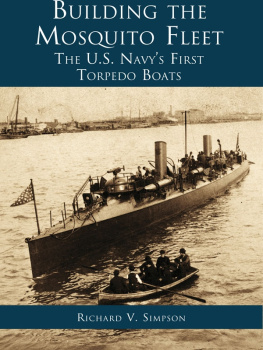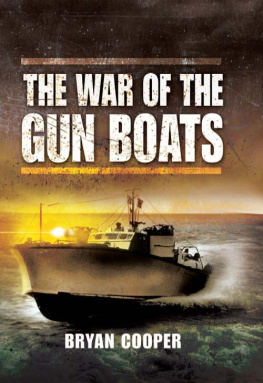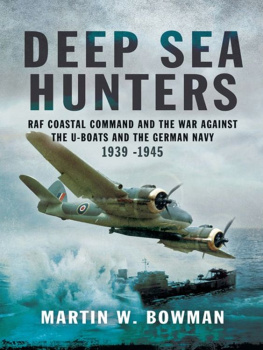Abraham Rabinovich - The Boats of Cherbourg: The Navy That Stole Its Own Boats and Revolutionized Naval Warfare
Here you can read online Abraham Rabinovich - The Boats of Cherbourg: The Navy That Stole Its Own Boats and Revolutionized Naval Warfare full text of the book (entire story) in english for free. Download pdf and epub, get meaning, cover and reviews about this ebook. year: 2013, publisher: Primary Publishing, genre: History. Description of the work, (preface) as well as reviews are available. Best literature library LitArk.com created for fans of good reading and offers a wide selection of genres:
Romance novel
Science fiction
Adventure
Detective
Science
History
Home and family
Prose
Art
Politics
Computer
Non-fiction
Religion
Business
Children
Humor
Choose a favorite category and find really read worthwhile books. Enjoy immersion in the world of imagination, feel the emotions of the characters or learn something new for yourself, make an fascinating discovery.
- Book:The Boats of Cherbourg: The Navy That Stole Its Own Boats and Revolutionized Naval Warfare
- Author:
- Publisher:Primary Publishing
- Genre:
- Year:2013
- Rating:4 / 5
- Favourites:Add to favourites
- Your mark:
The Boats of Cherbourg: The Navy That Stole Its Own Boats and Revolutionized Naval Warfare: summary, description and annotation
We offer to read an annotation, description, summary or preface (depends on what the author of the book "The Boats of Cherbourg: The Navy That Stole Its Own Boats and Revolutionized Naval Warfare" wrote himself). If you haven't found the necessary information about the book — write in the comments, we will try to find it.
On Christmas eve 1969, five small boats slipped out of Cherbourg harbor after midnight into the teeth of a Force Nine gale that sent freighters scurrying for cover. The boats, ordered by Israel from a local shipyard, had been embargoed for more than a year for political reasons by France. In a brazen caper, the Israelis were now running off with them. The vessels would be refueled at sea by Israeli merchant ships spaced along the 3,000-mile escape route. As the boats raced for home and Paris fumed, the world media chortled at Israels hutspa. But the story was far bigger than they knew.
Eight years before, the commander of the Israeli navy had assembled senior officers for a brainstorming session. Israels aging fleet faced downgrading to a coast guard unless it was capable of guarding Israels sea lanes. Given the navys minimal budget, what were the options? A desperate proposal emerged from the two-day meeting.
Israels fledgling military industries had developed a crude missile which had been rejected by both the army and air force. The navy would now try adapting it. Guided missiles with large warheads, it was hoped, could give small, inexpensive, boats the punch of heavy cruisers. No such vessel existed in the West.
A dozen innocuous-looking patrol boats were ordered in Cherbourg to serve as platforms for the complex new weapon system taking shape in the minds of the navy command. Seven boats sailed for Israel before the embargo was clamped down. The navy was determined to retrieve the remaining five. Eighty sailors in civilian clothing were flown to Paris just before Christmas and dispatched by train in small groups to Cherbourg where they were hidden below decks until departure.
In Israel, meanwhile, a team from the navy and military industries was working virtually round-the-clock on the missile-boat project. Engineers, naval architects and others found themselves at the cutting edge of naval technology as they forged solution after innovative solution for the new system , a precursor of Israels emergence as the startup nation. Midway, it was learned that the Soviet Union had developed missile boats and was supplying them to its clients, Egypt and Syria. The accuracy of the Soviet Styx missile was demonstrated when an Egyptian missile boat, barely visible on the horizon, sank the Israeli flagship, the destroyer Eilat, with four missiles, each hitting the target. The Israeli navys chief electronics officer, guessing at the parameters of the Styx radar, devised electronic countermeasures aimed at diverting incoming missiles. But the efficacy of this anti-Styx umbrella could be tested only in combat.
On the first night of the Yom Kippur War, Israeli missile-boats engaged three Syrian missile boats off the Syrian coast in the first ever missile-to-missile battle at sea. The Syrians, whose missiles had twice the range of Israels, fired first. The Israeli sailors watched fireballs descending straight at them and then swerve to explode in the sea as the countermeasures kicked in. The Soviet-built boats had no such defenses. The Israeli boats closed range and sank the Syrian missile boats and two other warships. In a reprise two nights later, three Egyptian missile boats were sunk. From the fourth day the Arab fleets did not venture out of harbor. No Israeli boat was hit in the three-week war and the shipping lanes to Haifa remained open for much needed war supplies.
A country with little naval tradition, a limited industrial base and a population of only three million -- half that of New York City at the time -- had challenged the advanced weaponry of a superpower at sea and achieved total victory. A new naval age had dawned.
Meanwhile, beyond the horizon, more than 150 Soviet and American warships, from submarines to aircraft carriers, engaged in the largest and most dangerous naval face-off of the Cold War as their proxies battled on land.
Abraham Rabinovich: author's other books
Who wrote The Boats of Cherbourg: The Navy That Stole Its Own Boats and Revolutionized Naval Warfare? Find out the surname, the name of the author of the book and a list of all author's works by series.












